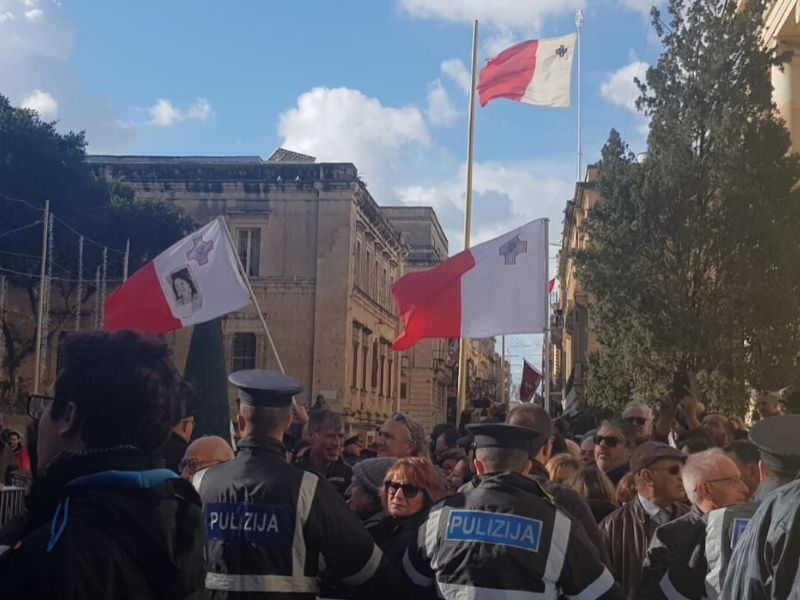Attorney General Peter Grech’s position is untenable following his directions which restricted the police investigation into the work of assassinated journalist Daphne Caruana Galizia, 12international press freedom NGOs have said, in a renewed call for justice 1000 days following the assassination.
On Tuesday, sources confirmed that Grech, as the chief prosecutor, sent a note to police in 2016 advising them against seizing possible evidence related to the Panama Papers, stressing that it would be “highly intrusive”.
“Such direct and unambiguous instructions from the Attorney General to restrict the police investigation into the content of Caruana Galizia’s work violated the responsibility of his post and was a clear obstruction to the course of justice rendering his position as Attorney General untenable,” they wrote in a statement.
The press freedom groups who signed the statement include ARTICLE 19, Association of European Journalists (AEJ), The Committee to Protect Journalists (CPJ), European Centre for Press and Media Freedom (ECPMF), Free Press Unlimited, Index on Censorship, International Freedom of Expression Exchange (IFEX), International Press Institute (IPI), Osservatorio Balcani e Caucaso Transeuropa (OBCT), PEN International, Scottish PEN and Transparency International.
The groups also called on the Maltese authorities to establish a Europol Joint Investigation Team in order for there to be “an end to impunity in Malta, and full justice for Daphne”.
The international organisations described the latest revelations “of State corruption and impunity related to the case” in recent weeks as “disturbing”, underscoring the weaknesses in Malta’s rule of law, as well as “entrenched impunity for both the murder of Caruana Galizia and the high level abuses of power she investigated.”
These revelations also included the tipping off by former Police Commissioner Lawrence Cutajar to middleman Melvin Theuma that he was under investigation and the investigation of former Deputy Police Commissioner and lead investigator Silvio Valletta and his dealings with charged mastermind Yorgen Fenech.
The groups also took note of recent developments in the public inquiry into the murder, where it emerged that the police had failed to take any action against Keith Schembri, in his previous capacity as Chief of Staff for former Prime Minister, as well as disgraced former Prime Minister Joseph Muscat and former Energy Minister Konrad Mizzi after Caruana Galizia revealed they owned offshore Panama companies in 2016.
Investigations in Italy, France, Latvia and Montenegro have also revealed links to corruption related to Caruana Galizia’s investigations in Malta, they said.
“Had the corruption which Caruana Galizia exposed – including the Panama Papers – been fully investigated and prosecuted at the time, it could have reduced the risk and isolation that she faced as a journalist, including an orchestrated campaign of harassment and vilification by high level political and business figures in Malta,” they said.
The appointment of a new Head of Economic Crimes Unit, Alexandra Mamo, and the nomination of a new Police Commissioner, Angelo Gafà, present an opportunity for the Maltese authorities to commit to tackling long standing failures to investigate and prosecute allegations of high level corruption and to reform institutions, they added.
They also gave a nod to the Venice Commission opinion on the Maltese government’s rule of law reform proposals.
“Prime Minister Robert Abela has stated that he expects police to investigate ‘all corners’ of the assassination. Today, we reiterate our call that the Maltese authorities honour the legacy of Daphne Caruana Galizia and ensure that all of those implicated in her murder – from the hitmen to the masterminds – are brought to justice and the corruption she revealed is finally prosecuted,” the organisations concluded.
12 July will mark the 1000th day since the journalist’s assassination.












